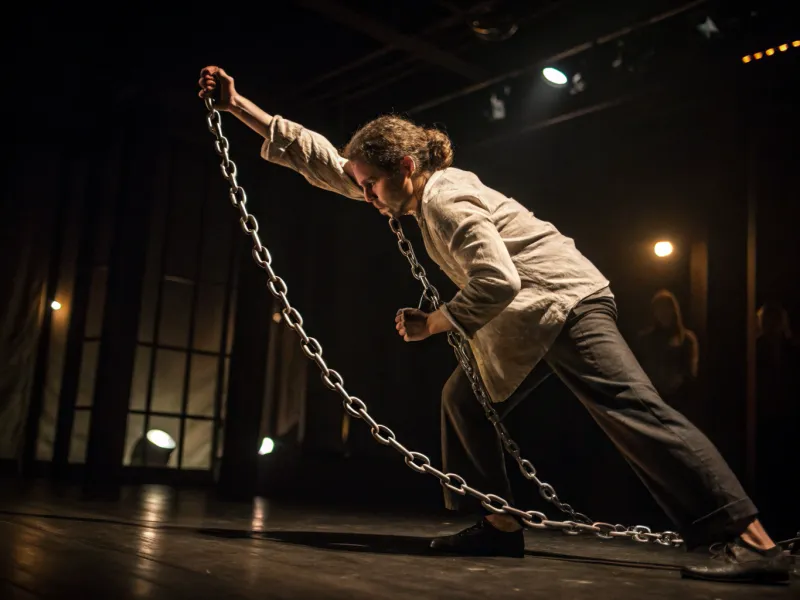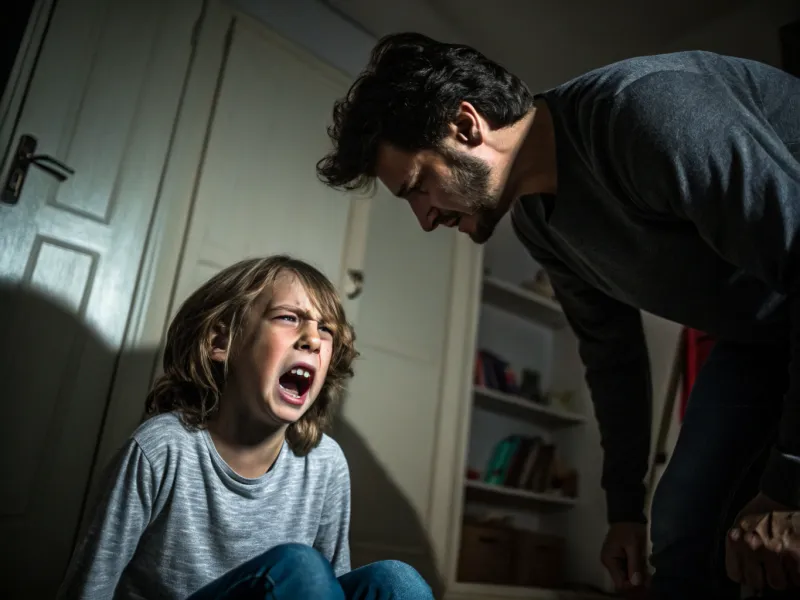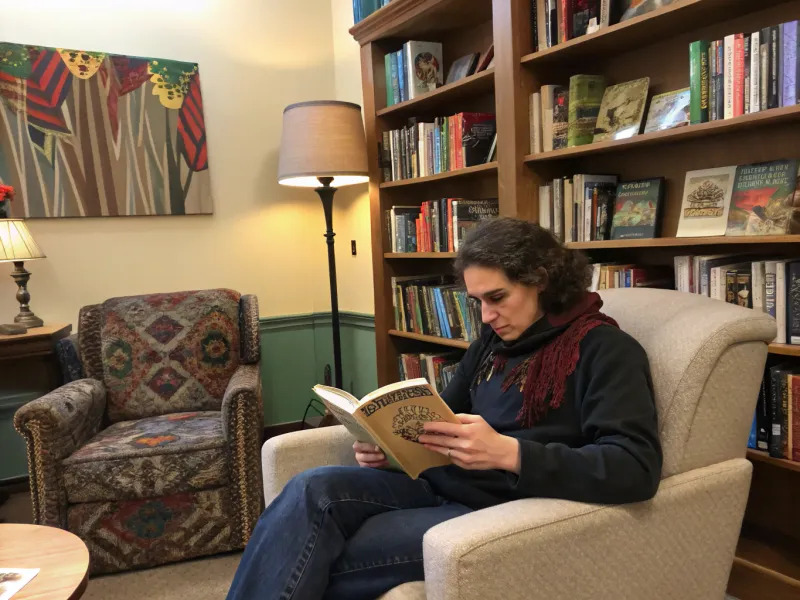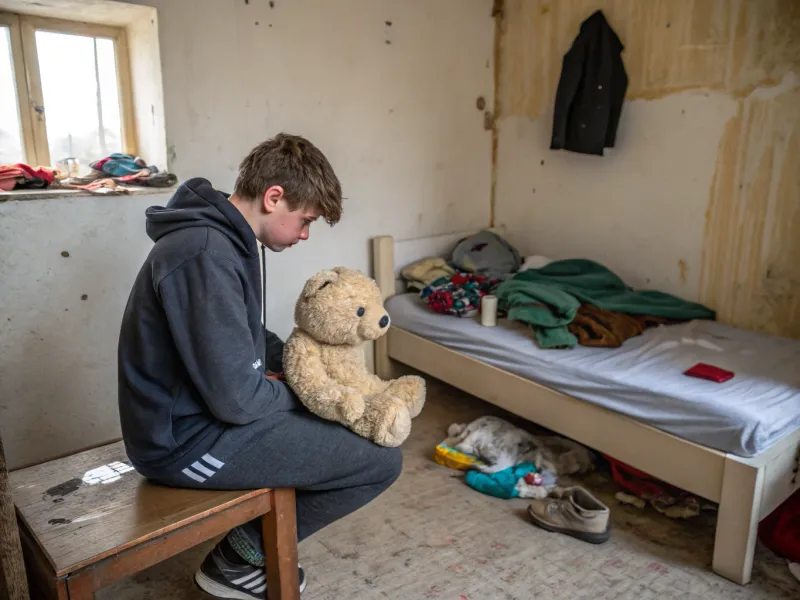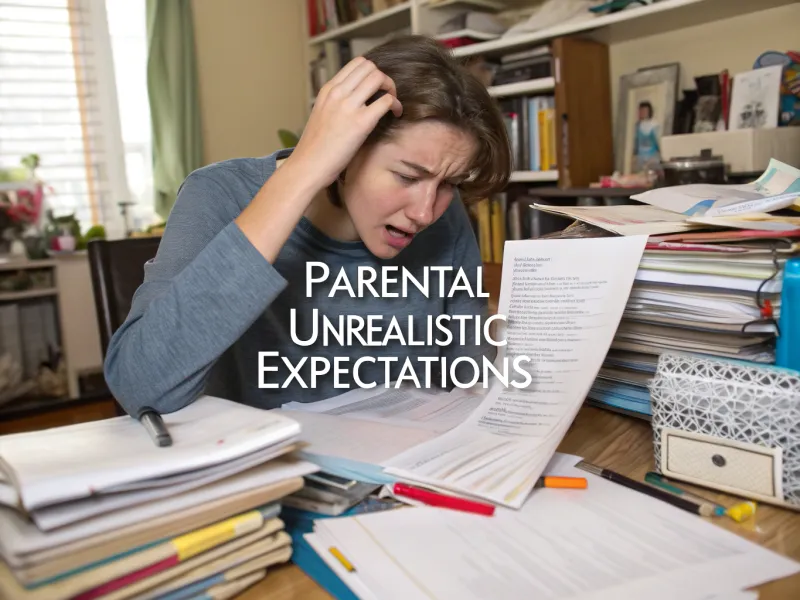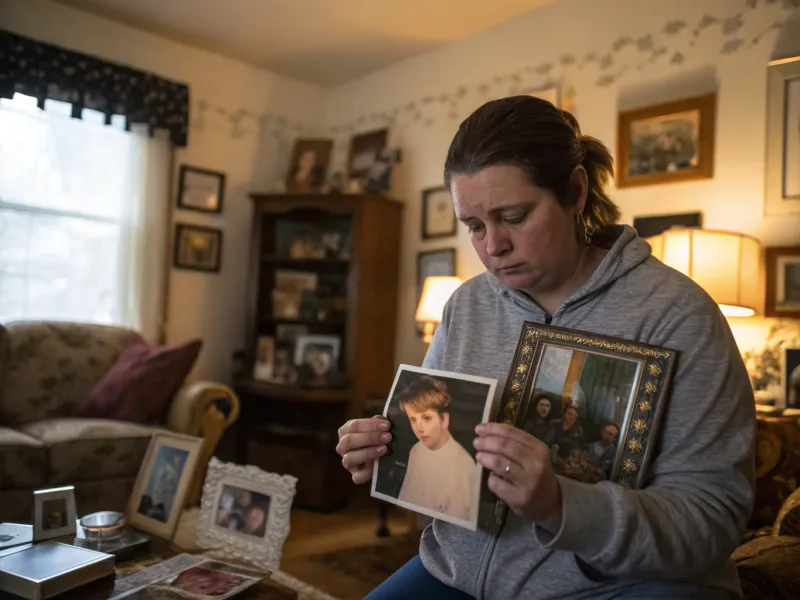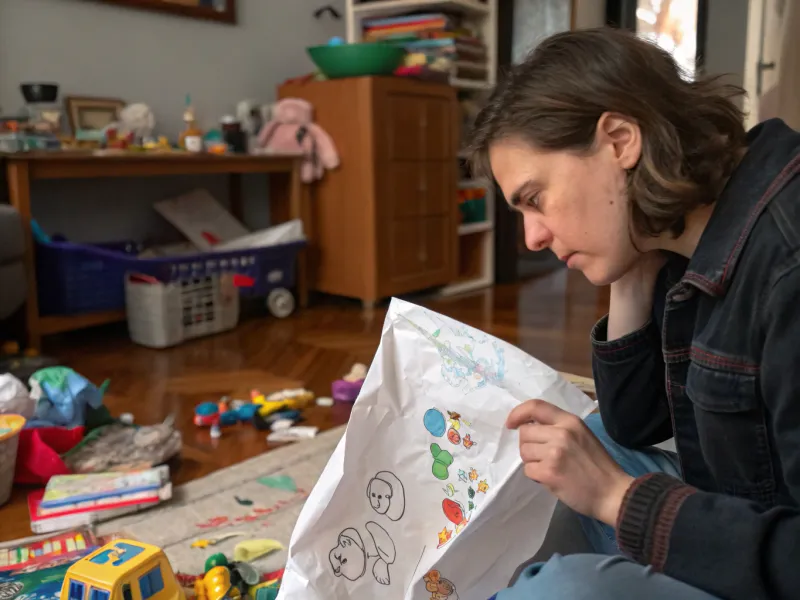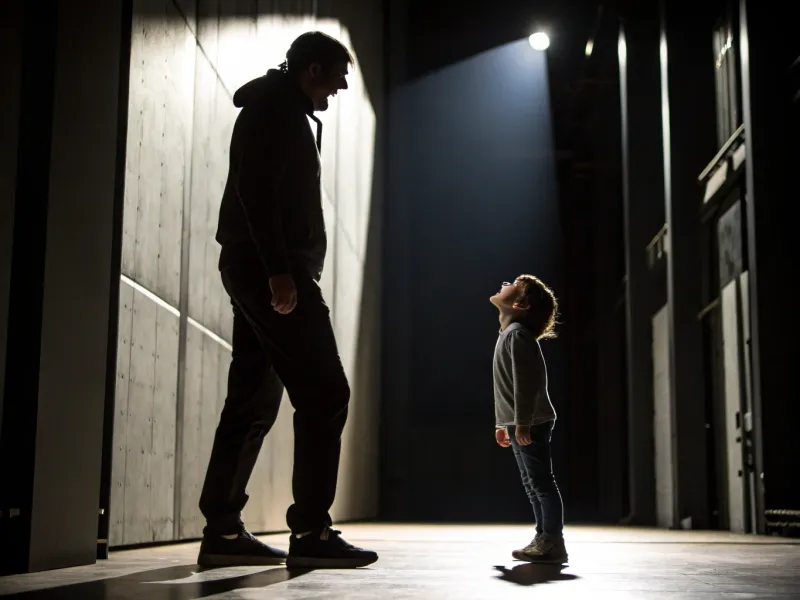Os laços familiares devem ser os laços inquebráveis que nos mantêm ligados à terra, proporcionando apoio e amor incondicional. No entanto, a realidade é que muitas crianças se encontram em situações em que cortar os laços com os pais se torna uma necessidade desoladora.
This decision, often fueled by deep-seated issues, is not made lightly. As you read through these 37 reasons, you may find yourself nodding in understanding or discovering new perspectives about familial relationships.
1. Abuso emocional
Emotional abuse leaves scars that are often invisible but deeply felt. For children who endure years of belittlement, manipulation, or constant criticism, it becomes almost impossible to view their parents as safe or supportive figures. These wounds can follow them into adulthood, shaping their self-esteem and emotional health.
Afastar-se de uma relação deste tipo é um ato corajoso de auto-preservação. Não se trata apenas de escapar a palavras duras, mas também de recuperar a autoestima e criar um ambiente mais saudável para o crescimento pessoal. Imagine o alívio de não ter mais medo do próximo golpe verbal ou comentário desdenhoso.
Esta decisão raramente é tomada sem uma reflexão cuidada. Trata-se de se libertar de padrões de toxicidade e de dar prioridade ao bem-estar mental em detrimento da lealdade familiar. A cura do abuso emocional é uma jornada profundamente pessoal, mas começa com a coragem de escolher a si mesmo.
2. Manipulação e controlo
Viver sob pais manipuladores pode ser sufocante, pois cada decisão é subtilmente influenciada ou abertamente controlada. Quer seja através da culpa, do medo ou da obrigação, este tipo de comportamento retira às crianças a sua autonomia e capacidade de viver autenticamente.
Para muitos, esta dinâmica conduz a uma crise de identidade, uma vez que as suas escolhas são ditadas pelos desejos dos pais. A pressão para se conformarem pode sufocar a individualidade e impedi-los de perseguir os seus próprios sonhos e objectivos.
Romper não é rebelião; é um ato de auto-descoberta. Ao criar distância, estes indivíduos reclamam a sua liberdade para fazer escolhas sem interferência, permitindo-lhes crescer e prosperar nos seus próprios termos.
3. Abuso físico
The effects of physical abuse extend far beyond the bruises—it leaves lasting emotional scars that make it hard to trust or feel safe. A home that should have been a sanctuary becomes a place of fear, and the parent-child bond is irreparably damaged.
Deixar esta relação é muitas vezes um ato de sobrevivência necessário. Continuar a envolver-se com pais abusivos só perpetua o mal e impede a verdadeira cura. Para muitos, o distanciamento é o primeiro passo para construir uma vida onde a segurança e a paz são a norma.
Esta decisão não é fácil, mas é fortalecedora. Permite que os sobreviventes redefinam as suas vidas, libertando-se do ciclo de violência. Trata-se de dar prioridade à auto-preservação e de encontrar a cura fora da sombra do abuso.
4. Abuso de substâncias
Crescer com pais que lutam contra a toxicodependência significa muitas vezes viver no caos e na instabilidade. A toxicodependência tem uma forma de se sobrepor a tudo, deixando as crianças entregues a si próprias ou mesmo a cuidar de si muito para além da sua idade.
Romper laços nesta situação não significa desistir de um dos pais; trata-se de escapar a um ambiente tóxico que drena o bem-estar emocional e físico. Para muitos, é um passo doloroso mas necessário para encontrar estabilidade e iniciar a sua própria viagem em direção a uma vida mais saudável.
Embora a culpa muitas vezes perdure, optar por sair tem a ver com libertar-se dos ciclos de disfunção e criar espaço para o crescimento pessoal. É uma forma de escolher a paz em vez da turbulência constante que a dependência traz.
5. Falta de aceitação
Quando os pais se recusam a aceitar os filhos como eles realmente são - quer se trate da sua identidade, estilo de vida ou valores - isso cria um profundo sentimento de rejeição e dor. Em vez de se sentirem amadas incondicionalmente, estas crianças crescem a sentir-se alienadas e incompreendidas.
Para alguns, a única forma de proteger o seu "eu" autêntico é criar distância. Esta decisão não tem a ver com fugir, mas com procurar ambientes onde sejam celebrados pelo que são, e não pelo que os pais querem que sejam.
Escolher a autenticidade em vez da aceitação é um poderoso ato de amor-próprio. Permite aos indivíduos rodearem-se de pessoas que os elevam e afirmam, em vez de permanecerem em relações definidas pelo julgamento e pelo amor condicional.
6. Controlo financeiro
Money can be a powerful tool for control, and some parents use it to manipulate their children’s decisions well into adulthood. By holding financial power, they create a dependency that limits freedom and self-expression.
Libertar-se deste controlo é muitas vezes um passo em direção à independência. Trata-se de recuperar o direito de tomar decisões sem receio de repercussões ou obrigações financeiras. Embora possa ser um desafio, este passo é fundamental para construir uma vida nos seus próprios termos.
Esta escolha não tem apenas a ver com dinheiro - tem a ver com poder. Ao afastarem-se, os indivíduos podem criar uma vida definida pela autonomia e autossuficiência, livre das amarras da manipulação financeira.
7. Dinâmica familiar tóxica
Crescer numa família marcada por conflitos constantes, manipulação ou favoritismo pode ser emocionalmente desgastante. Em vez de se sentirem apoiadas, as crianças nesses ambientes sentem frequentemente que estão a navegar num campo de batalha.
Afastar-se da dinâmica familiar tóxica não significa abandonar os entes queridos - trata-se de dar prioridade à saúde mental. A distância permite a oportunidade de curar e construir relações mais saudáveis fora da disfunção.
Criar este espaço pode levar a um crescimento incrível. Oferece a oportunidade de se libertar de padrões prejudiciais e redefinir o significado de família, centrando-se em ligações construídas com base no respeito e no cuidado.
8. Pais narcisistas
Os pais narcisistas centram muitas vezes tudo à sua volta, deixando pouco espaço para as necessidades, emoções ou individualidade dos filhos. Esta dinâmica pode corroer a autoestima e criar um ciclo constante de procura de aprovação que nunca chega.
Afastar-se desta relação tem a ver com a recuperação do valor próprio. É um passo para viver uma vida que não é ditada pelo ego ou pelas expectativas de outra pessoa. Para muitos, é a única forma de escapar ao ciclo exaustivo de tentar agradar a um progenitor que nunca estará satisfeito.
Esta escolha é transformadora. Permite que os indivíduos se concentrem na sua própria felicidade e construam relações em que são valorizados e respeitados, em vez de ofuscados.
9. Valores diferentes
When parents and children clash over fundamental values—be it political beliefs, religion, or lifestyle choices—it can create a chasm that’s hard to bridge. This friction often leads to a feeling of being unseen or unaccepted.
Optar por se afastar é muitas vezes encontrar harmonia em valores partilhados noutros lugares. Não se trata de rejeitar a família, mas de procurar espaços onde a individualidade seja respeitada e celebrada.
Esta decisão permite que os indivíduos vivam autenticamente, livres da necessidade de se conformarem com valores que não estão de acordo com os seus. É um passo para construir uma vida que reflicta as crenças e prioridades pessoais.
10. Negligência parental
A negligência é uma ferida que corta profundamente, deixando as crianças sem importância e sem apoio. Ao crescerem sem os cuidados emocionais ou físicos de que necessitavam, estes indivíduos carregam frequentemente um pesado fardo de solidão e insegurança.
Afastar-se é muitas vezes uma forma de procurar os cuidados e a validação que nunca receberam. Trata-se de encontrar pessoas e lugares que nutrem em vez de negligenciar, oferecendo uma oportunidade para curar.
Esta escolha é uma recuperação da dignidade e do valor próprio. Permite aos indivíduos redefinir as suas relações e encontrar o apoio que merecem, mesmo que seja fora dos limites da sua família.
11. Crítica crónica
Os pais que criticam constantemente os seus filhos criam um ambiente de auto-dúvida e ansiedade. Crescer sob um microscópio de julgamento pode deixar cicatrizes duradouras, tornando difícil para os indivíduos sentirem-se confiantes ou capazes.
Deixar esta relação é procurar ambientes que elevem e encorajem. Trata-se de encontrar espaços onde os esforços de uma pessoa são valorizados em vez de serem constantemente escrutinados.
Ao afastarem-se, as pessoas podem começar a reconstruir a sua autoestima e aprender a apreciar-se a si próprias sem o peso das críticas constantes. É um passo libertador em direção à auto-aceitação.
12. Sobreprotecção
Os pais superprotectores podem agir por amor, mas o seu comportamento pode sufocar o crescimento e a independência. Proteger as crianças dos desafios da vida nega-lhes a oportunidade de aprenderem, crescerem e desenvolverem a sua capacidade de resistência.
Romper com o passado significa muitas vezes ganhar a liberdade de cometer erros e enfrentar o mundo à sua maneira. É um passo para abraçar as incertezas da vida com confiança.
Esta escolha permite aos indivíduos descobrir os seus pontos fortes e navegar na vida de forma independente. Trata-se de sair da bolha e entrar num mundo de possibilidades.
13. Falta de comunicação
Nas famílias onde não existe um diálogo aberto, é frequente surgirem mal-entendidos e distanciamento emocional. A falta de comunicação significativa cria um vazio que dificulta a manutenção de ligações fortes.
Escolher distanciar-se tem muitas vezes a ver com procurar relações em que a comunicação aberta seja uma prioridade. Trata-se de encontrar espaços onde os sentimentos e pensamentos são reconhecidos e valorizados.
Este passo é uma forma de se libertar do silêncio e fomentar relações que prosperam na compreensão e no respeito mútuo. Trata-se de encontrar a sua voz e criar ligações mais profundas.
14. Traumas passados não resolvidos
For some, the presence of unresolved trauma in their family dynamic makes it impossible to maintain a healthy relationship. Whether it’s acknowledged or ignored, these traumas cast a long shadow over interactions.
Criar distância tem muitas vezes a ver com dar prioridade à cura. Trata-se de procurar ambientes onde a recuperação possa acontecer sem lembranças constantes da dor.
Esta decisão é um ato de autocuidado. Permite aos indivíduos trabalharem o seu passado e avançarem para um futuro em que o trauma já não define o seu presente.
15. Necessidades emocionais não satisfeitas
As necessidades emocionais não satisfeitas podem deixar uma profunda sensação de vazio, uma vez que as crianças anseiam pelo afeto e apoio que estiveram ausentes na sua educação. Esta falta conduz frequentemente a sentimentos de inadequação e saudade, uma vez que faltam os laços essenciais de amor e compreensão. Crescer sem apoio emocional pode tornar difícil a formação de relações saudáveis e o desenvolvimento de um forte sentido de si próprio.
A decisão de se afastar tem muitas vezes a ver com a procura de ambientes que ofereçam a nutrição emocional que estava a faltar. Trata-se de encontrar espaços onde os sentimentos são validados e a empatia é abundante. Esta separação é um passo para criar ligações que proporcionem o conforto e os cuidados que estavam a faltar.
Libertar-se do ciclo de necessidades emocionais não satisfeitas tem a ver com descobrir o valor próprio e aprender a procurar relações que satisfaçam esses desejos. Muitos descobrem que esta decisão permite a exploração de ligações genuínas que oferecem o calor e a compreensão que lhes faltavam. É uma viagem para encontrar amor e apoio para além das limitações das necessidades emocionais não satisfeitas, criando uma vida repleta de relações significativas e estimulantes.
16. Expectativas irrealistas
Os pais que colocam exigências impossíveis aos seus filhos criam um ciclo de stress, ansiedade e insegurança. A pressão para atingir objectivos inatingíveis leva frequentemente ao esgotamento e a uma sensação de fracasso perpétuo.
Afastar-se tem a ver com a recuperação da liberdade de definir o sucesso nos seus próprios termos. É um passo em direção a uma vida que dá prioridade à felicidade pessoal em vez da validação externa.
Esta escolha permite que os indivíduos se concentrem no seu bem-estar e criem objectivos que estejam de acordo com as suas capacidades e aspirações. É um passo em direção ao equilíbrio e à aceitação de si próprio.
17. Falta de apoio
Sem o apoio dos pais, as crianças sentem-se muitas vezes isoladas, indignas e perdidas. Em vez de receberem a orientação e o encorajamento de que necessitam, são obrigadas a enfrentar sozinhas os desafios da vida.
Quando falta a rede de segurança de apoio emocional ou prático, a opção de se distanciar torna-se um mecanismo de sobrevivência. Trata-se de criar um círculo de pessoas que oferecem os cuidados e a compreensão que lhes foram negados em casa.
Ao afastarem-se de pais que não os apoiam, muitos descobrem a sua própria resiliência. Este ato não se trata apenas de partir - trata-se de procurar relações que verdadeiramente elevem e alimentem o crescimento.
18. Diferentes percursos de vida
Diverging life paths can often create a divide in families, particularly when parents are unable to accept their children’s choices. This misalignment can feel like a rejection of identity, leaving individuals questioning their place within the family.
Procurar a distância é muitas vezes uma forma de honrar o percurso de uma pessoa. Não se trata de rejeitar completamente a família, mas de criar espaço para seguir os seus sonhos sem interferências ou julgamentos.
Ao escolher este caminho, os indivíduos abrem-se à possibilidade de ligações onde as suas escolhas são valorizadas e celebradas. Esta distância permite-lhes construir uma vida que reflecte o seu "eu" autêntico.
19. Alienação parental
A alienação parental, em que um progenitor manipula o seu filho para que este rejeite o outro progenitor, provoca danos emocionais profundos. As crianças apanhadas nesta dinâmica são forçadas a escolher um dos lados, muitas vezes à custa do seu bem-estar emocional.
Optar por se afastar de ambos os pais ou do pai manipulador é muitas vezes uma forma de recuperar a estabilidade pessoal. É uma oportunidade para escapar ao tumulto emocional e reconstruir um sentido de confiança nas relações.
Esta decisão é motivada por uma necessidade de paz. Permite que os indivíduos se afastem das forças de divisão e criem um futuro que dê prioridade à honestidade e às ligações autênticas.
20. Parentalidade incoerente
Uma educação inconsistente fomenta a confusão e a insegurança, deixando as crianças sem saber o que esperar. Regras flutuantes, comportamento imprevisível e falta de estabilidade emocional podem afetar profundamente o sentimento de segurança de uma criança.
Para aqueles que crescem neste ambiente, criar distância é muitas vezes uma tentativa de estabelecer estabilidade noutro lugar. Trata-se de encontrar consistência e equilíbrio nas relações para além da casa da família.
Ao afastarem-se, muitos aprendem a redefinir as suas expectativas e a criar uma base emocional assente na confiança e na fiabilidade. É uma forma de quebrar o ciclo de incerteza e construir algo mais forte.
21. Dependência doentia
Os pais que fomentam a dependência podem fazê-lo com boas intenções, mas os efeitos a longo prazo podem ser sufocantes. Quando as crianças se sentem presas a esta dependência, torna-se difícil para elas construírem a sua própria identidade.
Libertar-se é muitas vezes a única forma de desenvolver uma verdadeira independência. Trata-se de encontrar a coragem para navegar na vida nos seus próprios termos, mesmo que isso signifique afastar-se de uma dinâmica familiar.
Por mais desafiante que possa ser, esta etapa oferece a oportunidade de crescer, explorar e descobrir o seu potencial sem limitações. Trata-se de abraçar a liberdade de viver de forma autónoma.
22. Pais prepotentes
Pais autoritários podem ofuscar a capacidade dos filhos de fazerem escolhas independentes. O seu envolvimento constante muitas vezes não deixa espaço para a auto-expressão ou para o crescimento pessoal.
Ao procurar a distância, os indivíduos ganham o espaço de que necessitam para definir os seus próprios limites e tomar decisões sem pressões externas. Trata-se de recuperar o controlo sobre as suas vidas.
Este processo é transformador, permitindo o desenvolvimento pessoal e uma sensação de autonomia. Para muitos, é um passo necessário para estabelecer a sua própria identidade, livre de influências prepotentes.
23. Falta de respeito
When parents consistently disregard their children’s feelings, opinions, or boundaries, the relationship becomes toxic. A lack of respect undermines trust and fosters resentment.
Afastar-se de uma tal dinâmica é muitas vezes uma forma de exigir o respeito que tem estado ausente. Trata-se de criar uma vida onde os limites pessoais são reconhecidos e valorizados.
Ao afastarem-se, os indivíduos criam espaço para relações mais saudáveis e respeitosas. É uma decisão baseada na autoestima e na crença de que o respeito mútuo é essencial em qualquer relação.
24. Distância emocional
A distância emocional dos pais cria uma relação fria e distante, deixando as crianças ansiosas por calor e ligação. Sem intimidade emocional, a ligação parece vazia e insatisfatória.
Procurar a distância é muitas vezes encontrar relações em que as necessidades emocionais são satisfeitas e os sentimentos são validados. É uma forma de procurar ligações que ofereçam cuidados e compreensão genuínos.
Esta decisão permite que os indivíduos dêem prioridade à saúde emocional. Trata-se de construir um círculo de pessoas que realmente os vêem, ouvem e apoiam de uma forma que os seus pais não conseguiram.
25. Limites e privacidade
Os pais que não respeitam a necessidade de limites e de privacidade dos seus filhos criam frequentemente tensões e conflitos. As constantes intrusões no espaço pessoal podem ser sufocantes e levar ao ressentimento.
Distanciar-se é, muitas vezes, a única forma de estabelecer e fazer cumprir esses limites. Trata-se de estabelecer limites claros e proteger a autonomia pessoal.
Ao criar esta separação, os indivíduos reclamam o seu direito à privacidade e criam uma vida onde os limites são respeitados e honrados. É um passo em direção a interações mais saudáveis e a um maior respeito por si próprio.
26. Promessas não cumpridas
Os pais que fazem frequentemente promessas que não podem ou não querem cumprir criam um ciclo de desilusão. Com o tempo, isso corrói a confiança que o filho tem neles e prejudica a confiança essencial para qualquer relação significativa.
Muitas crianças decidem afastar-se como forma de evitar a dor repetida das expectativas não satisfeitas. Esta distância consiste em encontrar relações em que as palavras são seguidas de acções.
Ao afastarem-se, os indivíduos dão a si próprios a oportunidade de se rodearem de pessoas que valorizam a integridade. É um passo em direção a uma vida em que a fiabilidade e o cumprimento são fundamentais.
27. Concorrência pouco saudável
Nas famílias em que as crianças são postas umas contra as outras, o ambiente torna-se de rivalidade em vez de apoio. Este ambiente competitivo pode prejudicar as relações entre irmãos e fazer com que as crianças sintam que o seu valor está ligado às suas realizações.
Many choose to distance themselves from this dynamic to escape the constant comparisons. It’s about stepping into spaces where they can thrive without the pressure of unhealthy competition.
Esta separação permite o crescimento pessoal e a liberdade de definir o sucesso nos seus próprios termos. É um passo em direção à criação de relações baseadas no apoio e no encorajamento e não na rivalidade.
28. Favoritismo
Quando os pais favorecem constantemente um filho em detrimento de outro, isso cria uma dinâmica familiar tóxica. Este comportamento pode fazer com que o filho preterido se sinta indigno, não amado e ressentido.
Abandonar este tipo de favoritismo tem muitas vezes a ver com a recuperação da autoestima. É um passo para procurar relações que valorizem a igualdade e a justiça em vez do favoritismo.
Esta escolha permite aos indivíduos curarem-se das feridas da desigualdade e rodearem-se de pessoas que os apreciam por aquilo que são. Trata-se de encontrar o equilíbrio e o respeito nas relações pessoais.
29. Abuso de confiança
Quando os pais quebram repetidamente promessas ou traem a confiança dos filhos, isso deixa feridas emocionais difíceis de sarar. A confiança é a base de qualquer relação saudável e, sem ela, o vínculo torna-se tenso ou mesmo irreparável.
Muitas crianças optam por se distanciar como forma de proteger o seu bem-estar emocional. O facto de se afastarem de um ambiente assim permite-lhes procurar relações em que a honestidade e a integridade sejam valorizadas.
Esta decisão é muitas vezes um passo para reconstruir o seu sentido de segurança e criar uma vida onde a confiança é um princípio fundamental. Trata-se de dar prioridade a ligações que promovam a fiabilidade e o respeito mútuo.
30. Imaturidade emocional
Parents who lack emotional maturity often struggle to provide stability for their children. Their inability to manage their own emotions can lead to erratic behavior, making the family dynamic unpredictable and stressful.
Optar por se distanciar é muitas vezes uma forma de encontrar paz e consistência. Trata-se de se afastar do caos e procurar ambientes onde a maturidade emocional seja a norma.
Esta separação permite que os indivíduos se concentrem no seu próprio crescimento, livres da agitação causada por um comportamento imaturo. É uma decisão que se baseia no desejo de estabilidade e saúde emocional.
31. Humilhação pública
Quando os pais expõem os filhos a humilhações públicas, isso corrói a confiança e cria feridas emocionais duradouras. Este comportamento conduz frequentemente a sentimentos de vergonha e inadequação que podem perdurar até à idade adulta.
Retirar-se desta dinâmica é muitas vezes necessário para reconstruir a autoestima e estabelecer um sentido de dignidade. Trata-se de criar um espaço seguro onde os limites pessoais são respeitados.
Esta decisão reflecte um compromisso com o respeito por si próprio e com a saúde emocional. Permite que os indivíduos avancem sem o receio de serem minados ou menosprezados.
32. Falta de empatia
Os pais que não são capazes de empatizar com os seus filhos fazem com que estes se sintam frequentemente isolados e incompreendidos. Sem apoio emocional, estas relações podem ser profundamente insatisfatórias.
Criar distância é muitas vezes uma forma de procurar compaixão e compreensão noutro lugar. Trata-se de dar prioridade a relações que ofereçam a profundidade emocional que lhes faltava.
Ao afastarem-se, os indivíduos criam oportunidades de cura e crescimento, rodeando-se de pessoas que se preocupam genuinamente e sentem empatia. É um passo em direção à realização emocional.
33. Expectativas irrealistas
Os pais que impõem padrões inatingíveis aos seus filhos criam um ambiente de pressão constante. Isto leva a sentimentos de inadequação e ao medo de nunca serem suficientemente bons, por muito que se esforcem.
Optar por uma rutura é muitas vezes uma forma de escapar a este fardo e perseguir objectivos que se alinham com a felicidade pessoal. Trata-se de rejeitar o perfeccionismo em favor da auto-aceitação e do equilíbrio.
Esta decisão é um passo para definir o seu valor independentemente das expectativas dos outros. Permite aos indivíduos construir uma vida onde são livres de crescer ao seu próprio ritmo.
34. Conflitos de gerações
As diferenças geracionais podem criar divisões, sobretudo quando os pais têm dificuldade em aceitar valores ou estilos de vida modernos. Esta tensão conduz frequentemente a mal-entendidos e a uma distância emocional.
A procura de espaço permite que os indivíduos vivam autenticamente, livres dos constrangimentos de expectativas ultrapassadas. Trata-se de encontrar ambientes onde a individualidade é respeitada e acolhida.
Esta decisão promove o crescimento pessoal e permite a exploração de valores que se alinham com o nosso verdadeiro eu. É uma forma de seguir em frente sem compromissos.
35. Abuso de autoridade
Parents who abuse their authority create an oppressive dynamic, leaving their children feeling powerless and undervalued. This imbalance can stifle individuality and create lasting resentment.
Afastar-se tem muitas vezes a ver com a recuperação da autonomia e o estabelecimento de um sentido de igualdade nas relações. É um passo em direção à autonomia e à autoestima.
Ao libertarem-se, os indivíduos podem construir uma vida onde a sua voz é importante. Trata-se de criar ligações baseadas no respeito mútuo e não no domínio.
36. Gaslighting and Denial
Gaslighting parents manipulate reality, making their children question their own perceptions and memories. This emotional tactic creates deep confusion, self-doubt, and a feeling of isolation. When legitimate feelings and experiences are constantly denied or twisted, it becomes nearly impossible to maintain a healthy relationship.
Walking away from a gaslighting parent is a means of reclaiming personal truth. It’s about breaking free from manipulation and finding clarity in environments where experiences are validated. This decision is an act of self-preservation, allowing individuals to heal from years of psychological distortion and regain their confidence in their own reality.
37. Enmeshment and Lack of Boundaries
Some parents fail to recognize their children as separate individuals, creating enmeshed relationships where personal boundaries do not exist. In these dynamics, children are expected to fulfill their parents’ emotional needs, often at the cost of their own autonomy. This suffocating closeness can lead to guilt, resentment, and a struggle to form independent identities.
Choosing distance is an act of self-liberation. It’s about asserting the right to personal space and emotional independence. While difficult, this decision allows individuals to form healthier relationships that respect boundaries and personal growth, paving the way for a more fulfilling and self-directed life.



